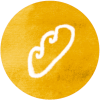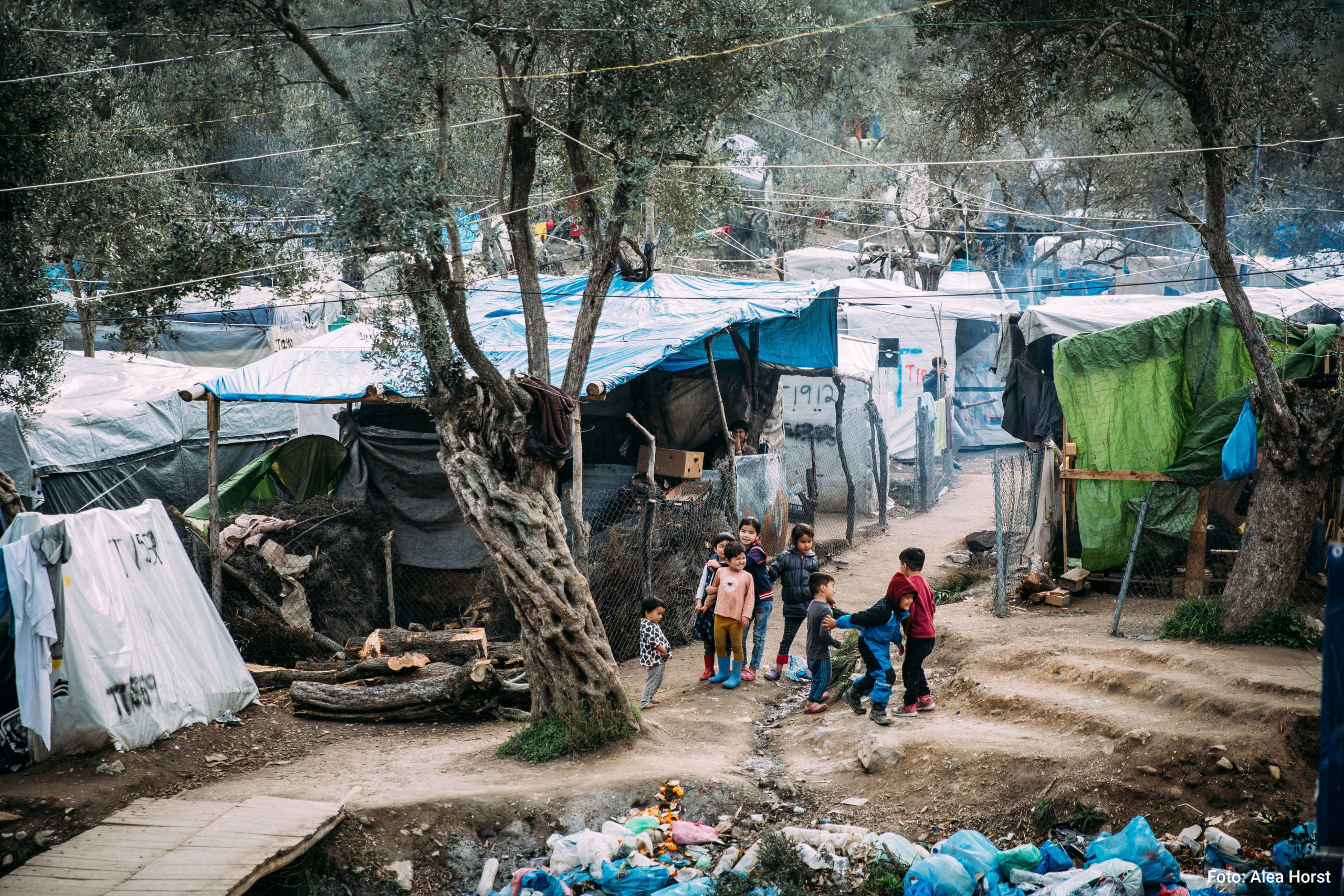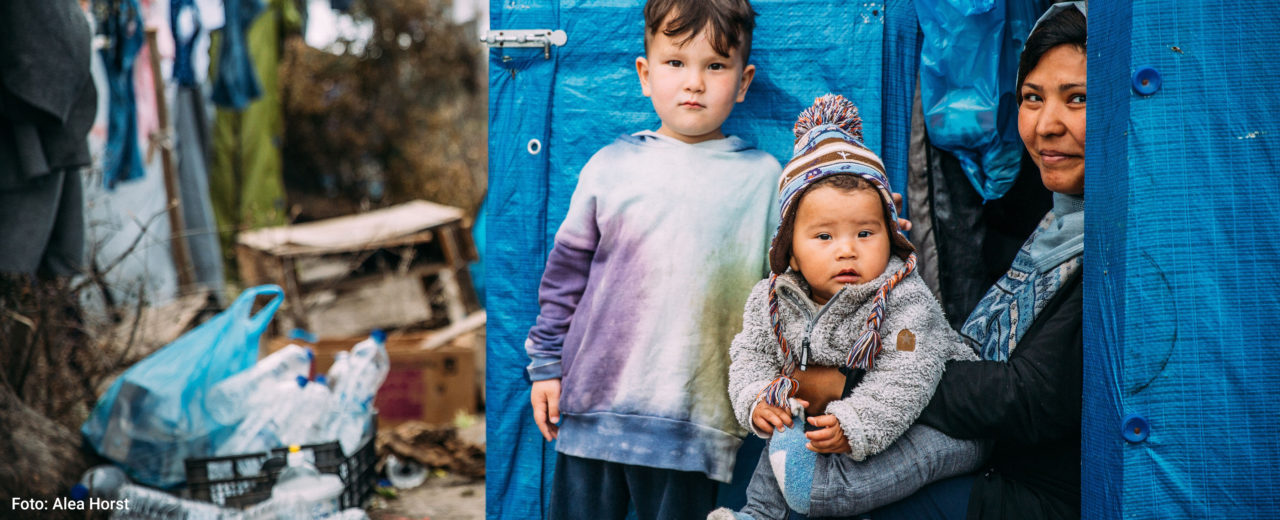 30 g milk powder - ensuring survival for refugees
30 g milk powder - ensuring survival for refugees
Malnutrition among babies in Greek refugee camps
When the young Afghan woman Nesrin in the Kara Tepe refugee camp on Lesbos is asked what her greatest wish is, she answers: "To ensure the survival of my child!" Like Nesrin, many women feel the same way about their children. There are about 2,000 minors in the Kara Tepe refugee camp, including many very young children (UNHCR, 2021). Especially on the Aegean islands of Lesbos, Chios, Samos and Kos, there are refugee camps without sufficient food and health care and without adequate hygienic facilities. NGOs and community centres provide these young children with powdered milk and clean water. But the situation is also getting more and more difficult in Athens. Several thousand people who previously lived in the camps on the Aegean islands now find themselves on the streets, including many young children who urgently need to be cared for (rbb24, 2021).
Necessity
Powdered milk for malnourished babies in refugee camps in Greece.
Activity
Powdered milk is bought and given to Greek partner organisations who provide it to the mothers and their babies.
Countable effort
1,500 babies in Lesbos, Chios, Samos and Athens can be supplied with powdered milk for a year.
Result
The children have a better chance to develop. They are more receptive, their immune system is more resilient and they are less susceptible to illness.
Systemic effect
Children of refugees have better chances of participating in society.
Background
79.5 million people were displaced worldwide in 2020 (UNHCR, 2020). Of these, around 50 per cent are women and girls (UN Refugee Agency, 2021). They migrate for a variety of reasons, often because they have experienced violence, are threatened by forced marriage or genital mutilation. Not infrequently, they also become victims of assault while fleeing. Most women are traumatised when they arrive in the refugee camps (Heinrich Böll Foundation, 2018). There is great hardship in the Greek refugee camps. The refugees live in tents or under wooden shelters, the hygienic conditions are catastrophic and the people are not provided with enough food. There are hardly any psychologists to take care of the mental distress. Births take place in makeshift rooms, and women receive hardly any care before and after delivery. Under these circumstances, not all women are able to breastfeed their babies and thus provide them with sufficient nutrition (Simkin & Klaus, 2015). The babies are malnourished and urgently need powdered milk as a substitute food. But powdered milk is expensive and not included in the daily food allowance that the refugees receive. Greece is still reeling from the financial crisis in 2008, and the economy is recovering slowly (Der Standard, 2019). Solidarity with the refugees does exist, but many Greeks continue to live at subsistence level and have little to give.
The good deed
With your donation today, you will provide 30 g of powdered milk for a baby in a refugee camp in Greece. The milk powder is either bought in Germany and brought to Greece with aid transports or procured directly on site. The partner organisations in Greece, which have been active on the ground for years, give the milk powder and clean water directly to the refugee women and families and explain how to prepare it. This does not solve the women's psychological distress, but at least it takes away their worries about feeding their babies for a longer period of time. The women and families can take care of procuring other necessary food. This makes their already arduous daily lives a little easier. Taking action against malnutrition also provides a little more equality of opportunity for the children affected, because deficiencies at an early age can inhibit child development. This is another reason why providing food early and sufficiently is essential.

AboutGreece
Athens
Capital
10,715,549
Number of inhabitants
17,676 USD
Gross domestic product per capita per year
32 of 189
Human Development Index
Greece is the birthplace of democracy. The south-eastern European nation is one of the countries with the most islands in the world. Greece' external EU border is 734 kilometres long (Goruma, 2021).
About the organization and further information
Association
Wir packen’s an e.V. – Nothilfe für Geflüchtete
Website
Further information and source
- Der Standard, 2019. Griechenland erholt sich – auf wackeligen Beinen, Stand: 24.08.2021, Wien.
- Goruma, 2021. Griechenland: Geografie, Übersichtskarte, Stand: 24.08.2021, Berlin.
- Heinrich-Böll-Stiftung, 2018. Frauen undFlucht: Vulnerabilität – Empowerment –Teilhabe, Stand: 29.03.2021, Berlin.
- Rabe, H., 2015. Effektiver Schutz vor geschlechtsspezifischer Gewalt – auch in Flüchtlingsunterkünften, Policy Paper Nr. 32. Deutsches Institut für Menschenrechte, Berlin.
- rbb24, 2021. Reportage Geflüchete in Athen – "Die Situation ist katastrophal", Stand: 23.08.2021, Berlin.
- Simkin, P. & Klaus, P., 2015. Wenn missbrauchte Frauen Mutter werden. Die Folgen früher sexueller Gewalt und therapeutische Hilfen, Klett Cotta, Stuttgart.
- UNHCR, 2020. Über 80 Millionen Menschen Mitte 2020 auf der Flucht, Stand: 01.04.2021, Berlin.
- UNHCR, 2021. Aegean Islands Weekly Snapshot 09 –15 August 2021, Stand: 20.08.2021, Genf.
- UNO-Flüchtlingshilfe, 2021. Besondere Bedürfnisse von Flüchtlingsfrauen, Stand: 25.08.2021, Bonn.




